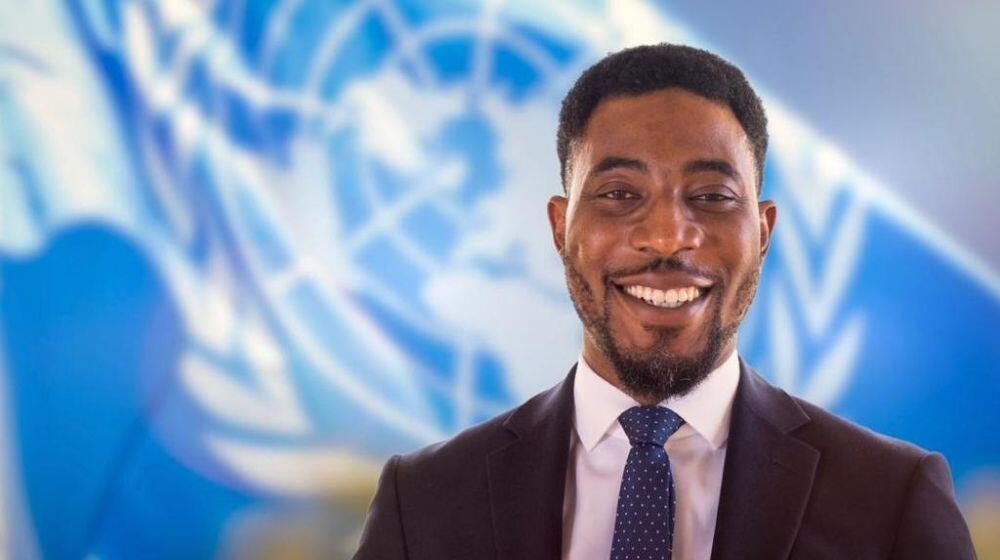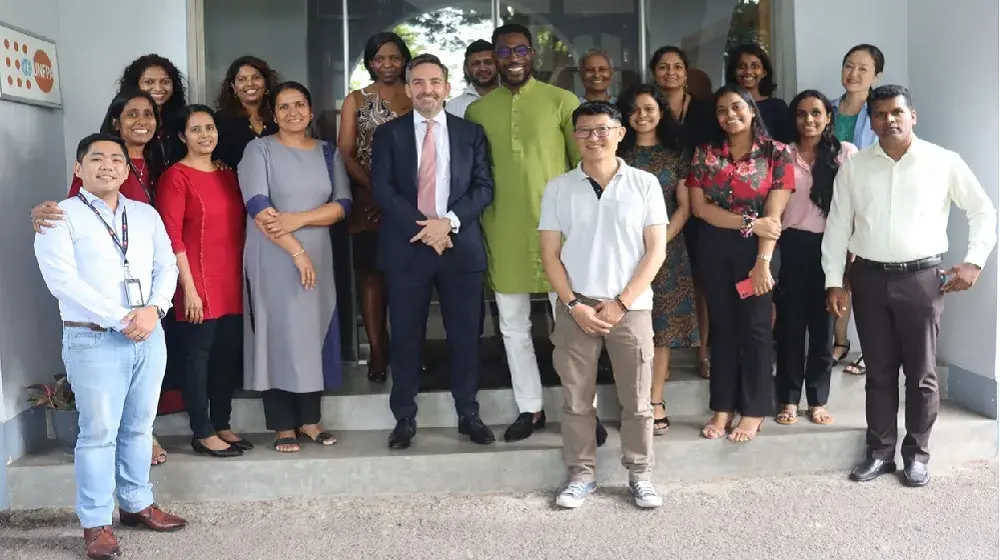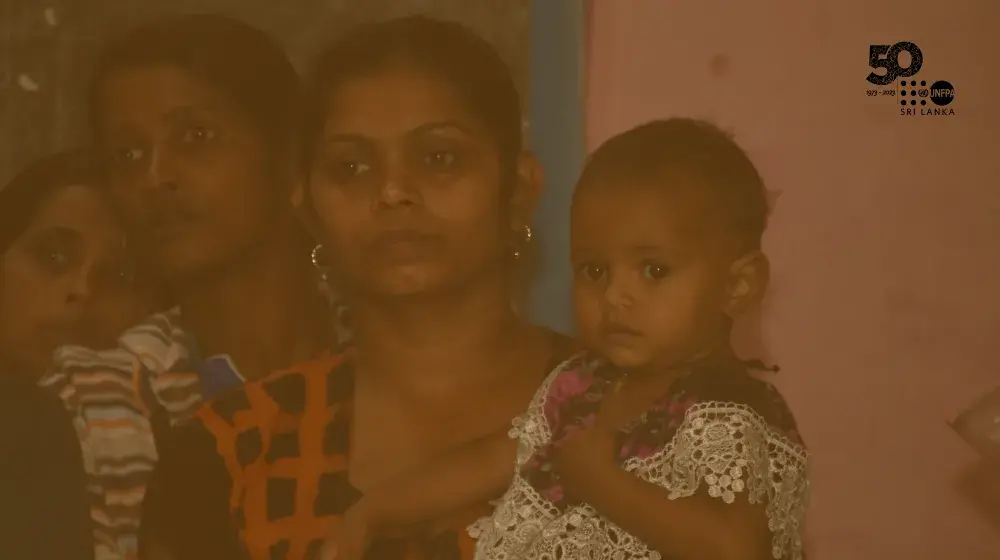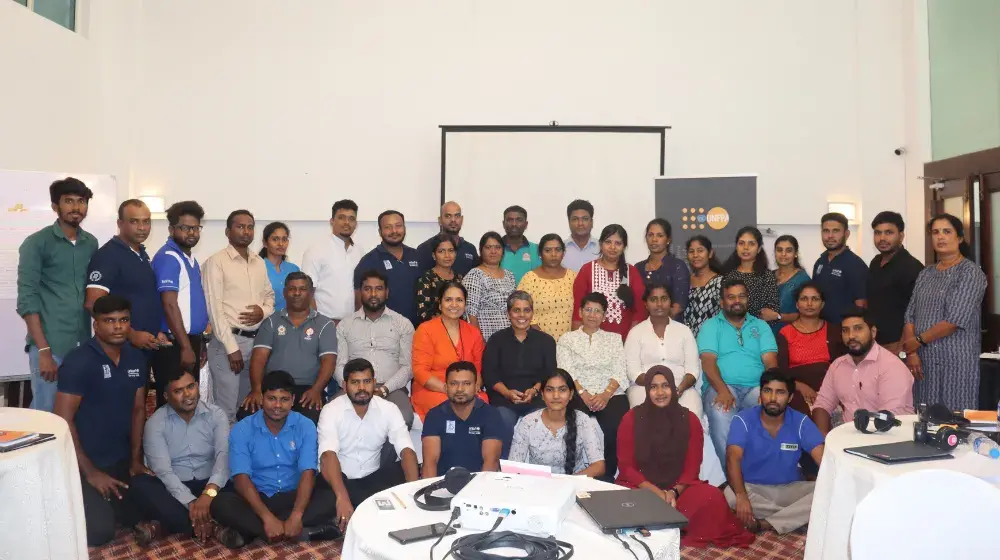A drop in the ocean
Having recently landed in Sri Lanka, it’s hard to miss the beauty of this island nation. The smiling faces, the changing scenic environmental landscapes and a society rooted in culture and heritage.
Arriving from an entirely different continent of Africa, the change into South Asia as a whole is stark but nonetheless, a welcome and pleasant change. One thing remains common - climate change.
The effects of climate change are seen far and wide, in every corner of the world, including in my home country - Nigeria. However, as an island, Sri Lanka and neighbouring Maldives, feel its impact much more.
Globally, while Ukraine continues to dominate the headlines, locally in recent months, the effects of the COVID-19 pandemic and the country’s economic crisis have garnered national attention but this means that other important issues, like the effects of climate change, have become just a drop in the ocean.
Without climate action, rising temperatures and increased occurrences of natural disasters are all expected to hit Sri Lanka’s most important sectors, like tourism, agriculture, apparel, and manufacturing, much harder. As they have elsewhere, these changes will disproportionately impact the most marginalized communities, and this includes women.
We know crises and public health emergencies such as COVID-19 disproportionately affect women and girls much more. This coupled with existing inequalities and poverty further exacerbates the condition for women.
In my recent travel to the Maldives I met a young woman who had lost her enterprise, which was located along the coastline, due to sea erosion and subsequent flooding. Just as she was financially recovering after moving her business more inland, COVID-19 hit, significantly affecting her livelihood. As the sole income-earner in the family, this had huge ramifications on her children’s education and the healthcare expenses in taking care of her aging parents.
This is the reality for many, not just in island nations but in many parts of the world.
Why are women more vulnerable to the effects of climate change?
While we all have heard repeated alarms on climate change, this International Women’s Month, it is good to take a step back and understand why women are more vulnerable to the effects of the fast-changing weather patterns. This is the only way to understand how we can shape our work to ensure our interventions are sustainable so Sri Lanka can have a more prosperous, brighter and greener tomorrow.
Women's vulnerability to climate change stems from a number of factors - social, economic and cultural.
They represent a high percentage of communities that are highly dependent on local natural resources for their livelihood, particularly in agriculture, fishing and farming areas. They also shoulder the major responsibility for household water supply and energy for cooking and heating, as well as for food security for the family. During extreme weather such as droughts and floods, women work twice as hard just to secure livelihoods. This leaves less time for education, skills development, careers and income generation.
Women also face a magnitude of bias perpetuated by gender norms and stereotypes that restrict their control over how they manage their resources due to land ownership issues, and limit their access to decision-making spaces. Without access and control over natural resources, women are less resilient to climate shocks.
These biases confine women simply to rearing and child-bearing duties which hinders their potential to confront climate change. These inequalities result in exposure to violence. It is widely known that during crises, women face heightened domestic violence, abuse and harassment.
In this context, women will continue to struggle to exercise their rights because of the prevalence of gender-discriminatory norms and attitudes. If they attempt to do so, they may be penalized or even suffer violence. One of the most important challenges will therefore be breaking down the cultural biases around the role and positions of women.
How can we change the tide?
Rooted in patriarchal norms and values, gender biases shape the way we think, the way we make decisions on who gets a seat at the table and the way we operate even in simple matters like how we delegate chores in the home. These biases, if left unchecked, can further perpetuate gender norms fueling a further unequal world.
In Sri Lanka (where I took office just a few months ago), and in many corners of the developed and developing world, evidence indicates that these unhealthy biases are what drives gender inequalities at the very personal level which is also then reflected in the professional sphere because ultimately, it is these power dynamics that cause gender-based violence.
In Sri Lanka, one in four women have experienced sexual and/or physical violence since age 15 (Women's Wellbeing Survey, 2019). This again is a result of a lack of equality and women not being able to move out of the cycle of violence, predominantly due to social norms that communities feel they must conform to. Almost half of all women interviewed in the survey supported by UNFPA agreed that “a man should show he is the boss” (47.5%) and almost half agreed that “a good wife obeys her husband even if she disagrees” (46.5%).
Another study on ‘Masculinities’ conducted in Sri Lanka showed that a majority of men (64%) subscribe to the view that childcare is primarily the mother’s responsibility, while 57% hold the view that women’s primary responsibility is taking care of the family and house care. A majority of men also related manhood to dominance and violence, with 58% believing that ‘It is manly to defend the honour of your family even by violent means’ (CARE, 2013).
This is the danger of these norms that shape our lives, and will only continue to do so unless we educate ourselves and be conscious of our own innate biases.
How can we change the tide to ‘break’ these biases?
We must work on climate change adaptation and mitigation efforts that bring women also into the conversation. Women need to have a seat at the table and have their voices heard on matters which affect everyone.
This means we must challenge existing norms that are ingrained within each of us.
The United Nations Population Fund (UNFPA), is working in Sri Lanka and the world over, to deliver a world where the potential of women and young people will be realized. As we mark International Women’s Month 2022, let us call on Governments to invest in climate action that upholds the rights of women and promotes gender equality and equity in all spheres.
As the world continues to recover from the ongoing COVID-19 pandemic, now is the time to come together to break the bias for a sustainable tomorrow. Together we can change the tide and break the bias not just for women and society, but for the environment too.
***
This Opinion-Editorial is authored by Mr Kunle Adeniyi, United Nations Population Fund (UNFPA) Representative of Sri Lanka and Country Director of The Maldives.





